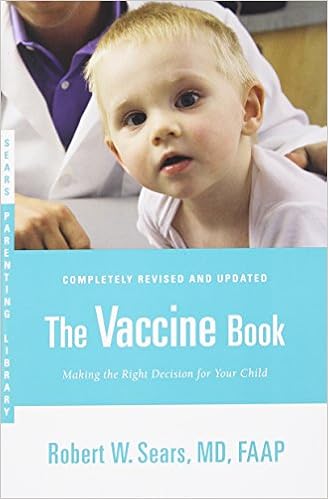
What are the benefits of a delayed vaccine schedule?
For parents who selectively immunize, delaying or spacing out vaccines is appealing because it alleviates their concerns while ensuring their child is at least partially if not eventually fully immunized. For parents who refuse all immunizations, the feared risks of vaccines outweigh any and all benefits.
Can I delay vaccines for my baby?
Children do not receive any known benefits from following schedules that delay vaccines. Infants and young children who follow immunization schedules that spread out or leave out shots are at risk of developing diseases during the time you delay their shots.
Which vaccines are absolutely necessary?
What Vaccines Do Kids Need?Chickenpox (varicella) vaccine.Diphtheria, tetanus, and pertussis (DTaP) vaccine.Hepatitis A (HepA) vaccine.Haemophilus influenzae type b (Hib) vaccine.Hepatitis B (HepB) vaccine.Human papillomavirus (HPV) vaccine.Influenza (flu) vaccine.Measles, mumps, and rubella (MMR) vaccine.More items...
What shots are given at 2 months?
At 1 to 2 months, your baby should receive vaccines to protect them from the following diseases: Hepatitis B (HepB) (2nd dose) Diphtheria, tetanus, and whooping cough (pertussis) (DTaP) (1st dose) Haemophilus influenzae type b disease (Hib) (1st dose)
Is it OK if vaccination is delayed?
Missing a vaccine puts your child at risk of contracting vaccine-preventable diseases. A delayed vaccination means making them susceptible to infections. The longer your child remains unimmunised, the higher their chances of getting exposed to and contracting diseases.
How long can we postpone vaccination?
If for any reason you can't keep your baby's vaccination appointment, doctors say that a vaccine can be delayed by up to a month without putting a baby's health at risk. But you should only delay a vaccine after speaking to your paediatrician and not unless you really need to.
What are the 3 most important vaccines?
diphtheria, tetanus, and pertussis (DTaP) vaccine. haemophilus influenzae type b vaccine (Hib) pneumococcal conjugate vaccine (PCV)
What are the most successful vaccines in history?
Smallpox vaccination with vaccinia virus is the most famous example of a highly effective vaccine and at the time when people were faced with smallpox outbreaks, this vaccine was associated with each of these characteristics that led to the implementation of a successful vaccine.
What diseases don't have a vaccine?
But there is still — despite 30 years of effort — no AIDS vaccine. There is no universal flu vaccine. There are no vaccines with long-lasting protection against malaria or tuberculosis. None for parasites like Chagas, elephantiasis, hookworm or liver flukes.
When can babies go out in public?
According to most pediatric health experts, infants can be taken out in public or outside right away as long as parents follow some basic safety precautions. There's no need to wait until 6 weeks or 2 months of age. Getting out, and in particular, getting outside in nature, is good for parents and babies.
What is the first vaccine given to a newborn baby?
What Is The First Vaccine Given To A Baby? Bacillus Calmette-Guerin (BCG), Oral Polio Vaccine (OPV 0), and Hepatitis B (HB 1) are the first vaccines your baby will get at birth. These are some of the important newborn baby vaccinations in India.
Which immunization produces a permanent scar?
The smallpox vaccine holds a live virus. It creates a controlled infection that forces your immune system to defend your body against the virus. The exposure to the virus tends to leave a sore and itchy bump behind. This bump later becomes a larger blister that leaves a permanent scar as it dries up.
Do baby vaccinations have to be exactly 4 weeks apart?
Your baby needs 2 rotavirus vaccinations at least 4 weeks apart to be fully protected. If they miss the 1st dose, they can have it at up to 15 weeks. If they miss the 2nd dose, they can have it at up to 24 weeks.
Can MMR vaccine be delayed?
In year 2, delaying MMR vaccine past 15 months of age results in a higher risk of seizures. The strength of the association is doubled with MMRV vaccine.
What happens if vaccination is delayed for baby UK?
If you miss the appointment or need to delay the immunisation, make a new appointment. You can pick up the immunisation schedule where it stopped without having to start again. Rotavirus vaccine can only be started in babies up to 15 weeks of age and no dose of the vaccine can be given over 24 weeks of age.
Can we delay PCV booster vaccine?
If delayed or interrupted scheduling of vaccination for children, adolescents and adults, 3 doses are recommended, with the second dose administered at least 1 month after the first, and the third dose 6 months after the first dose.